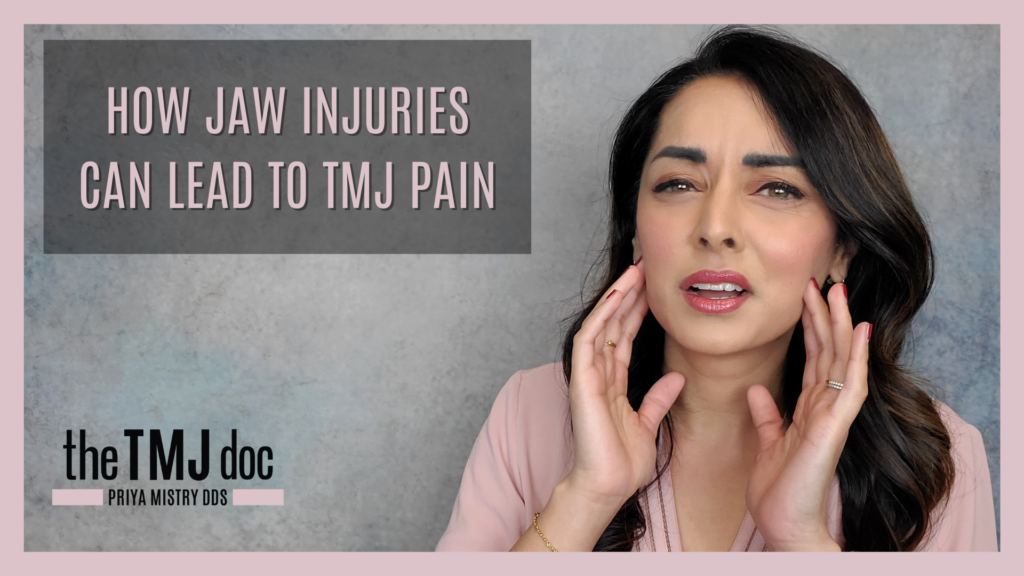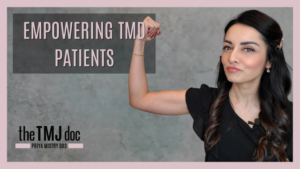If you’ve experienced a jaw injury, whether from a sports accident, a fall, or even whiplash, you might have noticed jaw pain or discomfort in the days or weeks that followed. While the immediate impact of a jaw injury might seem like the primary concern, it’s important to understand how these injuries can lead to long-term issues, especially with the temporomandibular joint (TMJ). Dr. Priya Mistry, in Vancouver, WA, offers insights into the connection between jaw injuries and TMJ pain, and how effective treatment can help alleviate your symptoms.
What Is the Temporomandibular Joint (TMJ)?
The TMJ is the joint that connects your jawbone to your skull, allowing for essential movements like chewing, speaking, and yawning. When this joint is functioning properly, it allows smooth motion and flexibility. However, when the TMJ becomes stressed, injured, or misaligned, it can lead to a variety of painful symptoms, collectively referred to as TMJ disorders. These can range from jaw discomfort to headaches and ear pain.
How Jaw Injuries Lead to TMJ Pain
Jaw injuries, whether from blunt force trauma, a sudden impact, or a misalignment caused by a fall, can cause the TMJ to shift or become inflamed. This can result in misalignment, muscle strain, and even damage to the structures surrounding the joint. Over time, the injury can disrupt the balance of the jaw, leading to a variety of painful symptoms, including:
- Jaw Pain and Tenderness: After an injury, you may experience discomfort or pain when chewing, speaking, or even when resting your jaw. This pain may increase as the muscles around the joint tighten in response to the injury.
- Clicking or Popping Sounds: Many people who have suffered jaw injuries experience a clicking, popping, or grating sound when opening or closing their mouth. This can be a result of changes in the position of the jaw or the way the bones in the joint move.
- Headaches and Migraines: Jaw misalignment can place extra stress on the muscles and nerves in the head and neck, leading to frequent tension headaches or even migraines.
- Neck and Shoulder Pain: Because the TMJ is closely connected to the muscles in your neck and shoulders, jaw injuries can lead to pain in these areas as well, creating a cycle of discomfort.
- Limited Jaw Movement: An injury to the jaw may also make it difficult to open or close your mouth completely, potentially affecting your ability to eat, speak, and perform other daily tasks.
How Dr. Priya Mistry Can Help You Recover from TMJ Pain
At Dr. Priya Mistry’s practice in Vancouver, WA, we understand how disruptive and painful TMJ disorders can be, especially when caused by jaw injuries. Dr. Mistry offers a range of treatment options designed to help you recover, alleviate pain, and restore full function to your jaw.
1. TMJ Orthotics
If your jaw injury has resulted in misalignment, Dr. Mistry may recommend a TMJ orthotic—a custom-designed device that helps reposition your jaw into a more natural alignment. This orthotic can reduce stress on the TMJ, alleviate pain, and help prevent further injury.
2. Comprehensive Evaluation
Dr. Mistry begins with a thorough evaluation of your jaw and overall dental health. She will assess your bite, joint function, and alignment, and may take X-rays to fully understand the extent of the injury. From there, she will develop a personalized treatment plan to address your specific needs.
3. Physical Therapy and Exercises
Dr. Mistry often incorporates targeted exercises and physical therapy to help improve the function of the jaw. These exercises aim to stretch and strengthen the muscles surrounding the TMJ, promoting better alignment and function while relieving pain.
4. Stress Management
Since stress can exacerbate TMJ issues, Dr. Mistry works with patients to develop strategies to reduce stress. Techniques such as relaxation exercises, guided breathing, and lifestyle changes can help alleviate tension in the jaw muscles and prevent further strain.
5. Pain Management
To manage the pain from TMJ disorders caused by jaw injuries, Dr. Mistry may suggest medications, ice or heat therapy, and even alternative therapies such as acupuncture to help alleviate discomfort.
6. Long-Term Care
In addition to immediate relief, Dr. Mistry focuses on providing long-term care to prevent future TMJ issues. She works closely with patients to monitor jaw health and ensure proper healing and alignment to avoid recurring symptoms.
Why Seek Treatment for TMJ Pain?
If left untreated, TMJ disorders caused by jaw injuries can lead to chronic pain and discomfort that significantly affects your quality of life. By addressing the issue early with the help of Dr. Priya Mistry, you can avoid long-term complications and enjoy a pain-free life once again.
Get Relief from Jaw Injury and TMJ Pain Today
If you’ve recently suffered a jaw injury or are experiencing any symptoms of TMJ pain, don’t wait to seek help. Dr. Priya Mistry is dedicated to helping patients in Vancouver, WA, find lasting relief from TMJ disorders caused by jaw injuries. Contact us today to schedule a consultation and take the first step toward restoring comfort and functionality to your jaw.
By addressing both the symptoms and root causes of your TMJ pain, Dr. Mistry ensures a comprehensive, effective treatment plan tailored to your specific needs.







